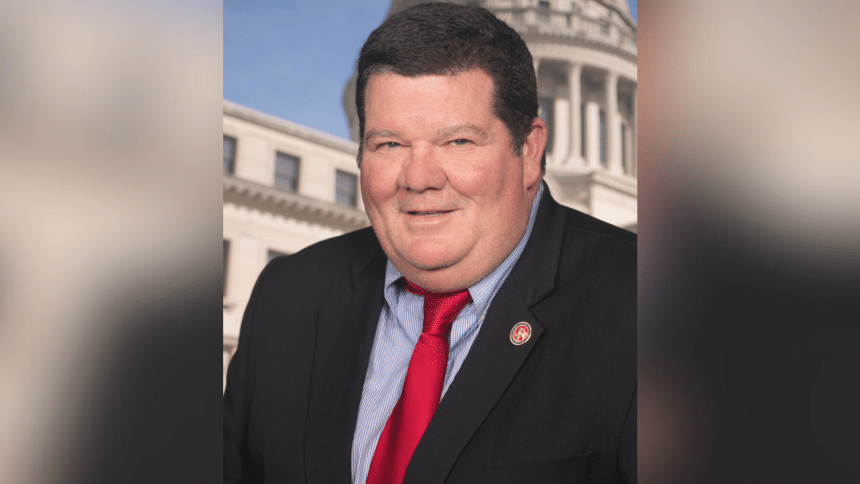On August 28 at 10:00 a.m., the Mississippi Legislature will hold a joint House and Senate hearing at the Capitol to explore the clinical potential of ibogaine, a promising therapy for addiction and PTSD. Exploration of a promising treatment is a critical step forward in our commitment to not just talk about the crisis our veterans and communities face, but to take meaningful, evidence-backed action.
Every year, thousands of Mississippi veterans return home carrying invisible wounds: post-traumatic stress disorder (PTSD), moral injury, chronic pain, and addiction. Too often, instead of healing, they receive sedation.
The Department of Veterans Affairs spends nearly $1 billion annually on psychiatric and pain medications, which are now widely known as “combat cocktails.” These regimens often involve overlapping prescriptions of antidepressants, antipsychotics, benzodiazepines, opioids, and sleep aids, typically administered without a coordinated treatment plan.
A recent investigation by the Wall Street Journal revealed the tragic consequences of this approach. The article detailed how veterans are being prescribed complex drug combinations that frequently dull cognition, compound mental health challenges and, rather than reducing risk, may increase the likelihood of suicide. As many as 1 in 3 veterans with PTSD are prescribed five or more psychiatric drugs at once, with no meaningful improvement in outcomes.
This is not healing. It’s dependency.
Rather than restoring quality of life, this pharmaceutical overload fuels a worsening crisis: More than 6,000 veterans die by suicide each year, including 60 to 65 Mississippians. Countless others suffer in silence, trapped between failed drug regimens and a lack of real alternatives.
This is more than a medical failure. It’s a policy failure and one we can change.
That path forward begins with Ibogaine, a plant-derived compound with extraordinary potential in treating opioid addiction, PTSD, and trauma-related disorders. In supervised clinical settings abroad, ibogaine treatment shows short-term success rates up to 80% and long-term rates of 50–70%. These results are far superior to what current therapies offer.
And it’s not just anecdotal.
In 2024, Stanford University’s School of Medicine published a groundbreaking study following U.S. Special Operations veterans. It documented “large, rapid, and sustained reductions” in PTSD symptoms, depression, anxiety, and suicidal ideation after a single dose of ibogaine.
The nonprofit Veterans Exploring Treatment Solutions (VETS) has helped more than 1,300 U.S. veterans receive ibogaine therapy outside the country. As Navy SEAL and VETS co-founder Marcus Capone put it: “Ibogaine saved my life. I tried everything available in the U.S. Nothing worked until this.”
Let’s be clear: Our veterans shouldn’t have to leave the country or break the law to find healing. They shouldn’t have to choose between silence and suicide.
The same holds for the broader public. In 2021, 556 Mississippians died from opioid overdoses, which were,71% of all drug-related deaths. Overdose rates among people under 35 increased by 158% between 2019 and 2021. The cost to our state in both lives and dollars is staggering. Every life lost is a tragedy and every dollar spent without meaningful impact is a failure of policy.
And yet, conventional treatments continue to fail. Nationally, relapse rates for opioid addiction remain between 60–90% within one year. Instead of innovation, we offer incarceration. Instead of healing, we extend prescriptions. It is unsustainable and unconscionable.
Conservative principles must step in.
We believe in individual freedom, limited government, fiscal responsibility, and innovation through public-private partnerships. Supporting ibogaine research honors every one of those values.
Mississippi has an opportunity to lead the South and the nation in pioneering a new path toward evidence-based, life-saving care. Just look at Texas. On June 11, 2025, Governor Greg Abbott signed Senate Bill 2308, allocating $50 million in state funds toward ibogaine clinical trials. Texas formed a consortium of universities, hospitals, and biotech firms, retaining commercial rights to any resulting treatments. Twenty-five percent of royalties go directly to veteran support programs.
This collaboration is innovative. It’s bold. And it is what leadership looks like.
Mississippi should do the same. We should:
- Support ibogaine clinical trials with university and health system partners;
- Demand federal reclassification of ibogaine to allow research and treatment;
- Expand Right to Try access for veterans and civilians with treatment-resistant conditions; and
- Reject the false binary of pills or prison for those suffering from addiction.
We already passed a Right to Try law for terminally ill patients. If we believe in that freedom for cancer, we should offer the same dignity and choice to those fighting for their lives against PTSD and addiction.
The current system that spends $1 billion on drug cocktails and has tens of thousands of suicides is a dead end. We can and must do better.
Let’s be bold. Let’s be early. Let’s lead.
Join us on August 28. Let’s give our veterans and communities something more potent than another prescription: a real chance at recovery.
The views expressed by contributors are their own and not the views of SuperTalk Mississippi Media.








